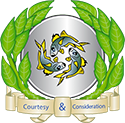Science
“The important thing is to never stop questioning.” – Albert Einstein

‘Know more, Remember more’
Contact Details
Science Lead is Mrs Kett
Policy
Intent
At Fishburn Primary School our intent is to provide a high-quality science education that stimulates the curiosity of our pupils, develops their scientific knowledge and skills, and builds a strong foundation for their future learning. We are committed to delivering a broad and balanced science curriculum that enables all of our pupils to become scientifically literate individuals who can understand and engage with the world around them.
Science is embedded into our curriculum through vocabulary and provision in preschool through to national curriculum objectives in Year 6. We celebrate what science achieves in the current world and the opportunities this holds for the future generation. In the local area, we have the fantastic NET Park who we are currently building up a partnership with to engage students and to help aspire future science careers. We are also collaborating with Durham University to nurture future science teachers and encourage an interest in science.
Our curriculum provides the foundations for understanding the world through the specific disciplines of biology, chemistry and physics. All pupils are taught essential aspects of the knowledge, methods, processes and uses of science and understand how science has changed our lives. Our curriculum creates an inquiry based, practical style of learning that allows children to develop curiosity, resilience and the independence to be successful in life and to be locally and globally responsible citizens.
Our intent for science education to foster an appreciation and understanding of the fundamental concepts and principles of science, and secondly to instill a positive attitude towards scientific inquiry and investigation. We aim to ignite a passion for science in our pupils, encouraging them to ask questions, think critically, and develop a deep sense of wonder and curiosity about the natural world.
Implementation
To ensure the effective implementation of our science curriculum, we follow a rigorous and carefully structured approach that aligns with the National Curriculum. Our teaching is guided by the following key principles and we use the Oxford Owl Science Mastery scheme to inform our planning:
- Sequential Progression
We provide clear and sequential learning opportunities that build upon prior knowledge and skills. We have a well-designed progression framework that outlines the science content and skills to be taught from year to year. This ensures a cumulative and logical progression as pupils move through the school.
- Practical and Hands-on Approach
We believe that practical, hands-on experiences are vital for developing a deep understanding of science. Practical activities, experiments, and investigations are regularly incorporated into our lessons to promote active engagement and enables our children to develop key scientific skills such as observation, prediction, measurement, and analysis.
- Cross-curricular Links
We actively seek opportunities to make cross-curricular links within science, integrating it with other subjects such as mathematics, English, and technology. This approach helps our children see the relevance of science to their wider learning and real-life experiences.
- High-Quality Resources and ICT Integration
We provide our teachers with access to a wide range of high-quality science resources, including textbooks, reference materials, and digital resources. ICT is integrated strategically to enhance pupils’ learning experiences, for instance, through interactive simulations, virtual experiments, and data analysis tools.
- Enrichment Opportunities
We offer various enrichment opportunities to broaden our pupils’ scientific horizons. This includes inviting external experts to deliver workshops, organizing visits to local science institutions such as NetPark, and participating in science competitions and fairs. We also encourage participation in STEM-related clubs or activities outside of school.
Scientists
Each half term classes will study a scientist to support their topic. Over the year the children will study a range of historical and contemporary scientists including different genders, ages and ethnicities.
Impact
Our science provision has a significant impact on our pupils’ aspiration, attainment, and engagement. Through our carefully designed curriculum and high-quality teaching, we strive to achieve the following outcomes:
- Deep Scientific Understanding
Our children develop a deep understanding of scientific concepts and principles, as evidenced by their ability to apply knowledge to explain real-world phenomena, make informed predictions, and solve problems using scientific thinking and methods.
- Inquisitive Minds
Our children develop an enquiring attitude, continually asking questions and seeking answers through scientific inquiry. They confidently pose scientific questions, plan investigations independently, collect and analyze data, draw conclusions, and evaluate results.
- Positive Attitudes and Engagement
Our children develop a genuine passion for science, showing enthusiasm, curiosity, and resilience when encountering scientific challenges. They actively engage in lessons, demonstrating a thirst for knowledge and a strong desire to learn more about the natural world.
- Progress and Attainment
Our children consistently achieve high levels of attainment and make good progress in science. Our assessment procedures enable us to track individual pupil progress effectively and intervene promptly to address any specific needs or gaps in learning.
- Awareness of Future Opportunities
Our children develop an awareness of the practical applications and career opportunities in science-related fields.
As a school we are dedicated to providing a science education that inspires, engages, and equips our pupils with the knowledge, skills, and attitudes necessary to be scientifically literate individuals. Our intent, implementation, and impact work cohesively to ensure the highest standards of science education and enrich the lives of our pupils both now and in the future.
Science Long Term Plan
Science Medium Term Plans
Autumn 23/24
Cultural Capital and Science at Fishburn:
Children will learn about all component parts of science during their time with us (STEM, biology, chemistry and physics). Children will learn about key scientific figures such as Marie Curie, Mary Anning and Isaac Newton. Children will take part in visits to science labs as well as have the opportunity to speak with people from the industry. Children will know and understand how science impacts on our every day life and why it is important for us to learn about it in school.

